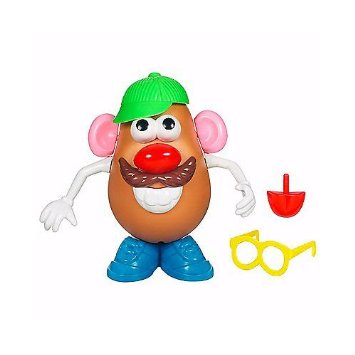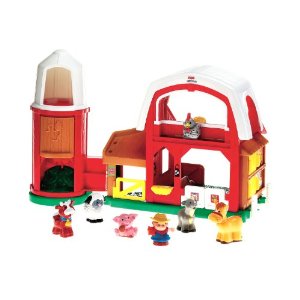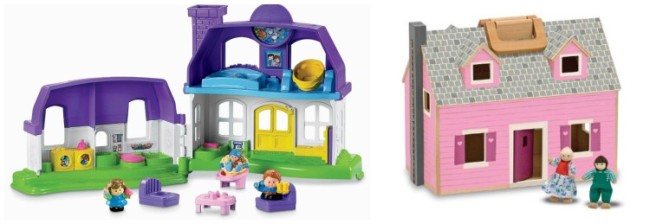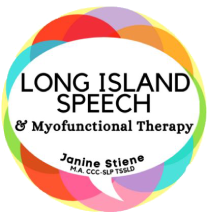Blog
Toys for Expanding Language
As SLPs, we are frequently asked by parents, “what can I do at home to help foster my child’s speech and language development?” There are numerous ways to help expand speech and language development in young children, and toys are definitely one of them. Children typically learn best during play, as it is the most natural context for them. The best toys are those that provide opportunities for open-ended play and meaningful language learning. Here is a list of the top 10 toys to encourage your child’s speech and language development while you interact in play:
- Mirror – Babies naturally love looking at their reflection. This is a great opportunity to narrate what/who they see, explore their senses, model appropriate speech sound production, and model joint attention.
 Building Blocks – Try to find a set with blocks of different shapes, colors, letters, and sizes, as this provides the most opportunities for language development. Use basic block building to target prepositions, size concepts, colors, counting, cooperative play (e.g. when building with friends), and problem solving skills (e.g. how to keep the tower from toppling over).
Building Blocks – Try to find a set with blocks of different shapes, colors, letters, and sizes, as this provides the most opportunities for language development. Use basic block building to target prepositions, size concepts, colors, counting, cooperative play (e.g. when building with friends), and problem solving skills (e.g. how to keep the tower from toppling over).- Toy Phone – This is an obvious favorite as it provides numerous opportunities to explore pretend play, social turn-taking (e.g. I talk and then you talk), social greetings (i.e. hello, goodbye), and language practice in general.
 Potato Head – This is staple for nearly all pediatric SLPs because it provides opportunities for body part identification, color identification, and review of basic concepts (i.e. 5 senses).
Potato Head – This is staple for nearly all pediatric SLPs because it provides opportunities for body part identification, color identification, and review of basic concepts (i.e. 5 senses). Farm – This simple toy provides opportunities to learn animal names, animal sounds, basic preposition (i.e. in, on, under, next to), and how to respond to wh-questions (e.g. “Which animal says oink-oink?).
Farm – This simple toy provides opportunities to learn animal names, animal sounds, basic preposition (i.e. in, on, under, next to), and how to respond to wh-questions (e.g. “Which animal says oink-oink?).- Doll House – When playing with a doll house, you can target all vocabulary related to the home, furniture, family member, and pets. You can also expand on prepositions, sizes, shapes (e.g. of windows vs. doors), and verbs (e.g. sit, stand, run, walk, eat, sleep, play, etc.). This toy is also perfect for following directions (e.g. put the girl on the small couch) and answering wh-questions (e.g. why is the baby sleeping?).

- Puzzles – Puzzles are excellent for fostering cognitive skills such as visual special awareness, problem solving, and reasoning, as well as fine motor skills. Each puzzle provides its own set of vocabulary. Most importantly, puzzles promote part/whole relationships as the pieces are used to make the puzzle complee.
 Cars/Trucks/Trains – Using these toys, you can target numerous basic concepts suc as colors, counting, fast/slow, and big/small. These portable toys are also great for action words and describing words such as go, stop, fast, slow, etc.
Cars/Trucks/Trains – Using these toys, you can target numerous basic concepts suc as colors, counting, fast/slow, and big/small. These portable toys are also great for action words and describing words such as go, stop, fast, slow, etc.- Play Dough – Play dough promotes speech and language, fine motor, and problem solving skills. Play dough is completely versatile and can be used to target prepositions, vocabulary (e.g. scissors, knife, shapers, etc.), verbs (e.g. cut, push, roll, etc.), following directions, and pragmatic language skills (e.g. eye contact, topic maintenance, turn-taking).
- Role Play Kits – This is the epitome of pretend play, which provides endless exposure to new vocabulary and jargon. A doctor kit, for example, provides opportunity to develop a “doctor visit” scenario, which includes the names of the doctor’s tools (i.e. thermometer, stethoscope, shot, band aids, etc.) and corresponding describing words (e.g. sick, tired, coughing, fever, etc.).
Jessica Eberhardt M.S. CF-SLP, TSSLD




